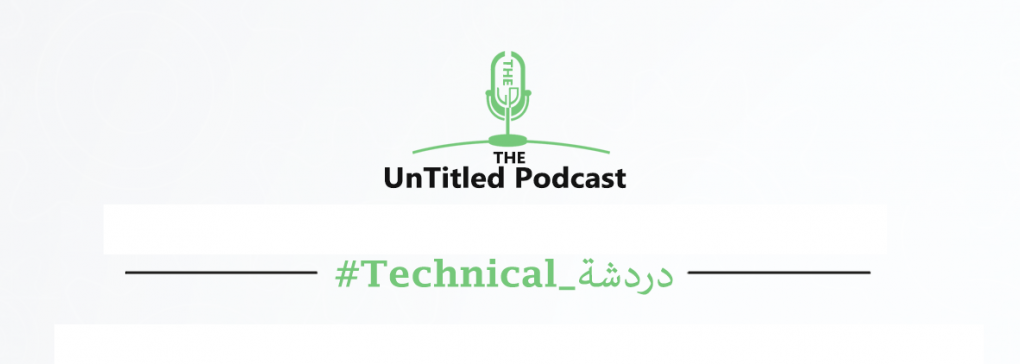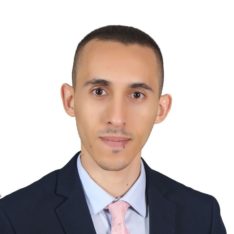June 20, 2018
The Untitled Podcast – Season #1 – a bit of history

Recently, me Abdelrahman Omran and my friend Eslam Salem a security researcher and founder of Shieldfy (a cybersecurity firm) launched a new technical podcast, where we talk about various technical and entrepreneurial topics in our interests; topics like JavaScript, EcmaScript standard and versions, Progressive Web Apps (PWA), Accelerated Mobile Pages (AMP), typical threats for web applications, Integrated Development Environments VS Text Editors, how to start open-sourcing, Service Workers, Naming Conventions, Frameworks VS classic coding, how internet works foundations, source control and git workflows, definition of IAAS / PAAS / SAAS, and some entrepreneurship initiatives.
Here’s a full list of all episodes in season #1, enjoy listening:
→ Episode 00 – Introduction
→ Episode 01 – ECMAScript Standard
→ Episode 02 – IDEs vs Text “Code” Editors
→ Episode 03 – What is Progressive Web Apps (PWA)
→ Episode 04 – Naming Conventions & Best Practices
→ Episode 05 – ES6: var, let, or const?
→ Episode 06 – PWA: Service Workers
→ Episode 07 – Frameworks VS Classic coding
→ Episode 08 – How Internet works?!
→ Episode 09 – What is Source Control?
→ Episode 10 – Source Control Clients
→ Episode 11 – Distributed & Centralized Source Control systems
→ Episode 12 – PWA: Offline Web Browsing
→ Episode 13 – PWA: Caching Strategies
→ Episode 14 – Start Open Sourcing
→ Episode 15 – Learning and Entrepreneurship Initiatives in Egypt
→ Episode 16 – ES6: Promises
→ Episode 17 – GIT Workflow
→ Episode 18 – IAAS, PAAS, SAAS explained!
Average episode duration is 6 minutes, with total recordings crossed 120 minutes, and average played minutes estimated to be 300,000 minutes.
You can follow us on Soundcloud, EgyptFOSS, Facebook, and soon Twitter! Our slogan was #technical_دردشة which means “Technical Discussion”
Retrospection
Please note that this review is from a logistics point of view, not from a content point of view.
It was a great journey we did together until the beginning of Ramadan 2018, at which we named the first trial season as complete. Since that was the first time to host a podcast, for both of us we expected to have some constructive feedback from our listeners, and sure we got a lot of it, I’ll try to document some of the highlights and lowlights here, which will shape our upcoming seasons.
First of all, neither me nor Eslam had any clue about what it takes to produce a good quality podcast, so we got some help from another friend who’s more experienced in media production to take care of recording, editing and post production issues, plus online publishing. He’s Mohamed Nabeel who’s Content Manager at eSpace, and he holds other positions like Editor-in-Chief at some online newspapers and former journalist at other popular ones, additionally he used to be a project manager at EgyptFOSS (an online platform that boosts and promotes Free and Open-Source Software in Egypt), so he managed to get us sponsored by EgyptFOSS and have our podcast being published and promoted through their online channels and platforms.
At first, we just wanted to do something good, to share our knowledge with the public, specially with the Egyptian geeks community, and the whole Arab world. It was spontaneous without much planning or official outlines, and overall it was a trial, something we got excited about so we gave it a shot. We preferred not to plan things ahead to avoid being stressed, over complicating things, and giving this experiment more than what it requires. We tried to make it as simple as we can, and that’s reflected on few things:
- We had no professional equipments, we tried an outdoor microphone of one of our friends, it didn’t work, so we just used my iPhone 7! And it did really good compared to that so called -professional mic-, we had no plans to buy or rent any equipments.
- We had no place to meet and record the podcast at, so we got covered by Mohamed Nabeel’s company, who generously gave us one of their meeting rooms twice weekly for free to record our episodes.
- We where recording in a meeting room, which happened to have echo, so we tried to fix this issue with very primitive solutions, by building a childish castle around ourselves using pillows and company’s furniture, to prevent sound echo and isolate other unneeded sound effects. It was funny!
Highlights
- From a quick overview on the Arabic podcasts, we were unique of our kind, Arabic, short, focused, technical, weekly podcast, that was an edge.
- Episodes were limited to six minutes on average, very focused and without any nonsense. People loved how short is it and used to listen at work in their breaks, and while commuting.
- We used to publish natively on every channel, which means we upload the episode to all platforms (Soundcloud, Facebook, Youtube, ..etc) and not just uploading on one channel and use that content embedded into other channels through reposting. That had positive and negative impact at the same time. The good thing is that users get the content natively on the platform they’re using (more familiar), but the bad thing is that we had diversified analytics and we couldn’t get clear view on our reach.
- It’s been really nice to meet some people in various events who happened to be listening to our podcast, and it was great to hear positive feedback that we didn’t even expect.
- Being spontaneous was a good point for not over thinking and complicating things, thus we just scheduled meetings for recording friendly whenever we see each other.
- With very limited resources we managed to produce something that’s helpful for some, and we had a great learning journey throughout the first season.
Lowlights
- We released two episodes per week, every Sunday & Wednesday, that was really exhaustive for us, we felt like being burned quickly.
- No clear roadmap on what’s coming, we just talked about topics we feel like talking about at recording time, but it happened that we recorded multiple related episodes like (PWA, ES6, and GIT), so people felt confused, it should have been a consecutive series dedicated for these topics.
- We had light topics like (IDEs VS Code editors) and intensive topics like (PWA: Service Workers), and we initially intended to post an intensive topic on Sunday, and a light topic on Wednesday, which we did, but after asking some of our listeners, it looks like no one noticed!
- Looks like we’ve reached a good audience on Facebook, but we didn’t reach well on other channels like Youtube, or Twitter.
- Due to the condensed schedule, me and my co-host Eslam found ourselves missing preparing episode references before publishing, so some episodes been published without show notes or any references, which wasn’t cool.
- Since the beginning, I wanted the podcast to be published on Apple iTunes, but Nabeel wasn’t aware on how to make it (or found some issues doing it), and we didn’t find the appropriate time to handle this again.
- There was no one taking the responsibility of publishing on twitter, so despite we had an account, we never used it before now.
- After few episodes, publishing on YouTube stopped, and the main channel was clear to be Facebook, Soundcloud, and EgyptFOSS, with audience only on Facebook.
- While EgyptFOSS helped us a lot, they also promised that being published under their own umbrella means that podcast episodes will be boosted through sponsored ads and marketing efforts, which didn’t happen. And the result is not having our own controlled content (since main channels were under EgyptFOSS accounts), and not having additional edge through special marketing or sponsorship benefits.
- Since our main audience was on Facebook, which doesn’t has dedicated audio player, our listeners recommended that we either record it as video so they can watch us, or put slides for what we’re talking about, seems they were watching the podcast, not listening on the go.
- We used to meet physically at Nabeel’s company to record new episodes, but some times we were very busy in work so we couldn’t make it, we didn’t try online recording which could have solved this issue.
- Seems that our circles were the main listeners and thus after few episodes we noticed that listeners began to fade and decrease gradually, and we didn’t have a clear reason for why, but it also mean we didn’t reach much people outside our friends and family members, we should work on this
Room for Enhancements
- Build a community around the podcast, an active one.
- Stop cross-posting and start cross-promoting alternatively.
- Always write show notes and add reference links before publishing.
- Use social media more efficiently and effectively, and have a marketing strategy.
- Be present on Soundcloud / Facebook / Twitter / YouTube / Official Website / iTunes.
- Write episode description and outline to fit in a tweet (280 characters), or two tweets at most.
- Have interaction with audience through scheduled polls and surveys, and maybe once a month going live.
- Have more guests into the show, and plan content ahead with clear and public roadmap, specially for series.
- Limit published episodes to only one every week, with one followup post for raising engagement with audience.
- Try online recording so we can expand our timeline, guests, and topics, and not to be limited to physical space or locations.
- Prepare some professional graphics to be used for promotional episodes publishing.
- Buy some professional podcasting gear for better recording quality.
That said, it was really great learning experience, and we’re now reflecting on the previous experiment, to enhance ourselves, our gear, fix things up, and prepare for the upcoming season with even better output and impact.
